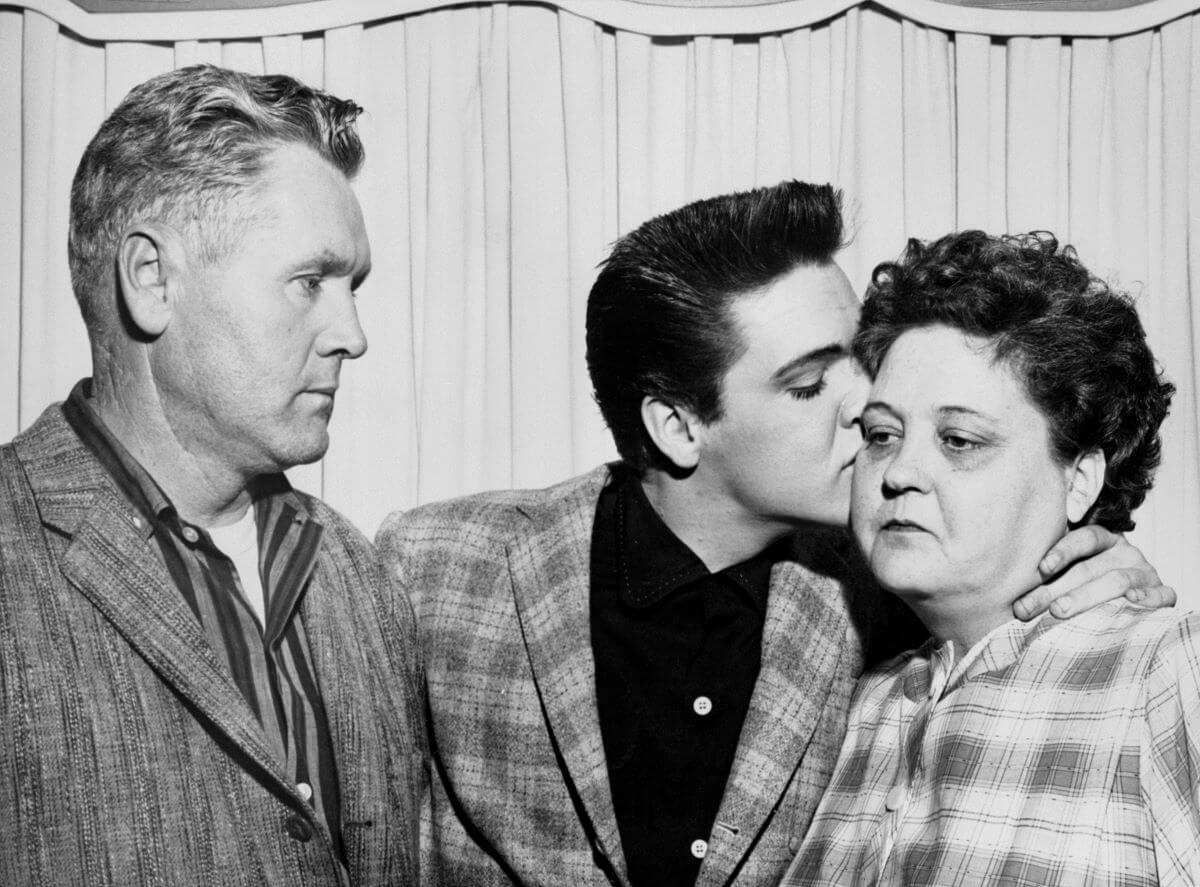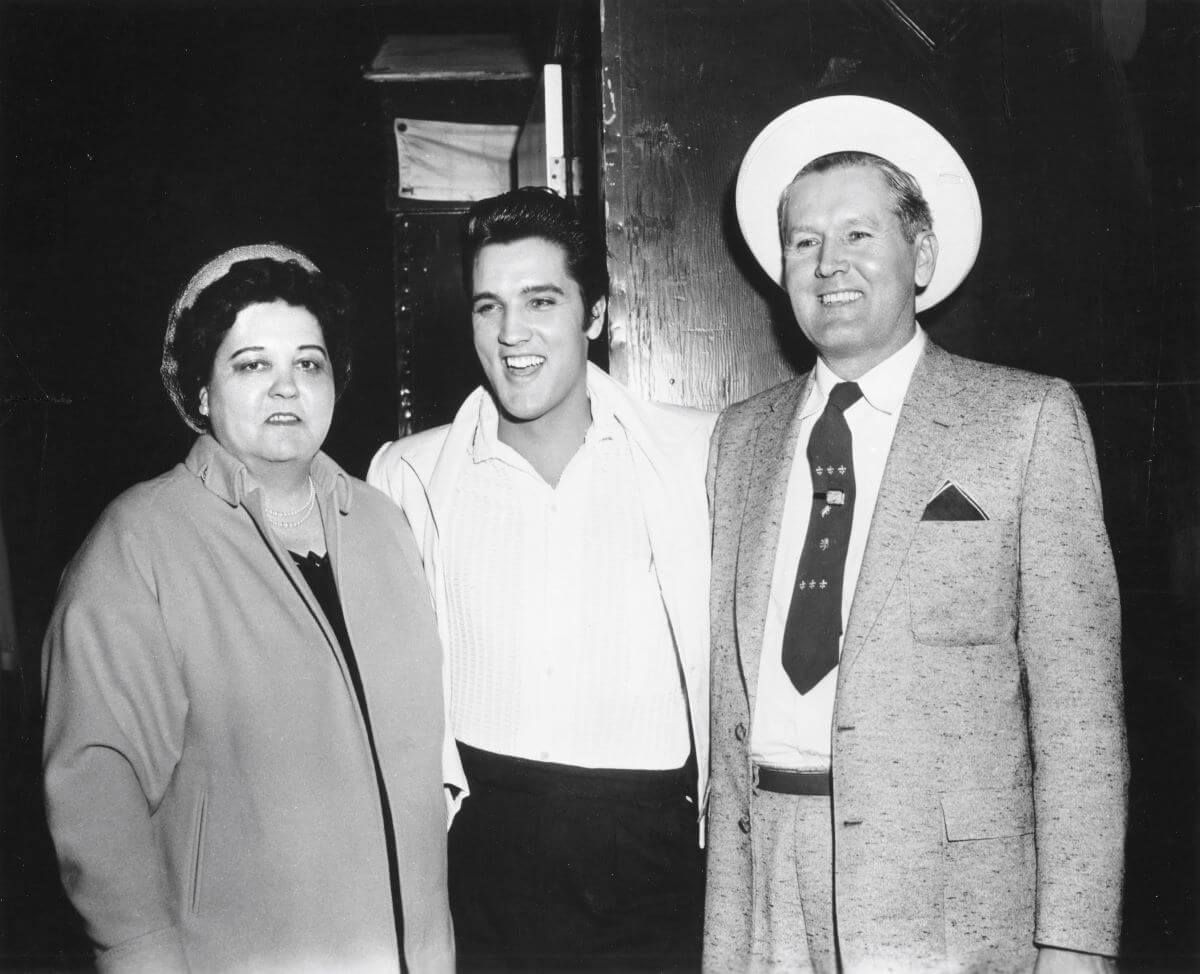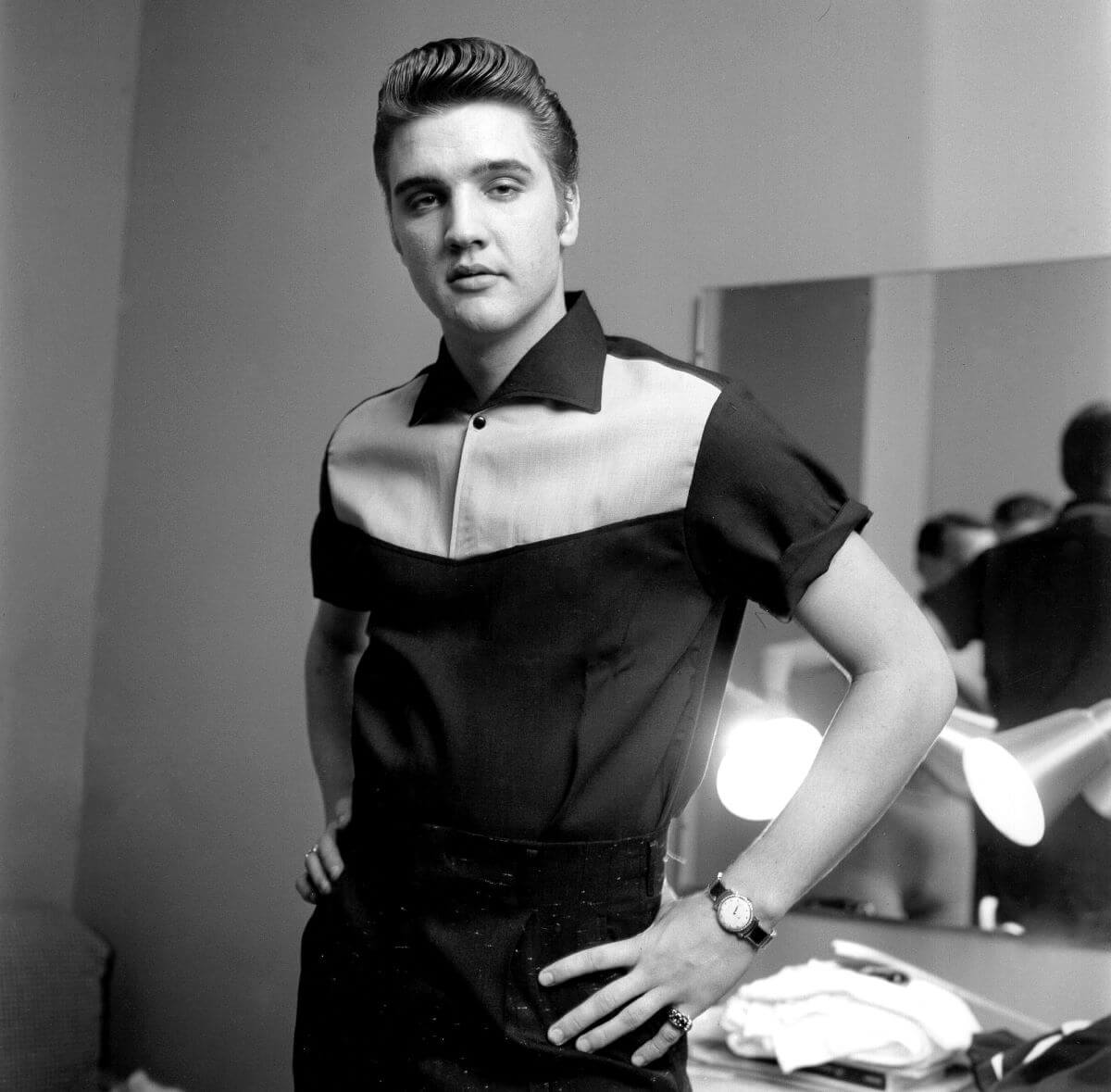
How Elvis’ Mother Reacted to Criticism of Her Son’s Music
Elvis Presley and his mother, Gladys, had a strikingly close relationship. Even Priscilla Presley, Elvis’ only wife, believed Gladys was the true love of his life. Gladys was extremely protective of Elvis and bristled against the criticisms he faced early in his career. Here’s what she said to people who suggested Elvis’ act was vulgar.
Elvis’ mother bristled against criticism of her son
Elvis was his parents’ sole child, and his mother was quite protective of him. He never spent a night away from home until he was an adult, and both mother and son believed they shared a psychic connection.
According to Priscilla Presley, Gladys protected Elvis against all forms of criticism.
“But from the beginning Elvis had insisted: ‘I just want to read positive reviews. I don’t want to hear any negativity.’ As a teenager he’d been shielded by Gladys from criticism,” Priscilla wrote in her book Elvis and Me. “When she’d filled her albums and scrapbooks, she’d used only the favorable clippings.”

Unsurprisingly, then, Gladys hated to hear the criticism Elvis faced early in his career. People called his act vulgar and inappropriate.
“My boy wouldn’t do anything bad, no such thing,” she would say, per Elvis: What Happened? by Steve Dunleavy. “He is a good boy, a boy who has never forgotten his church upbringing and he hasn’t changed one bit.”
Elvis and his mother were very close
Elvis and Gladys were so close that he felt morally lost after her death. She had long guided his life and without her, he felt unmoored.
“When his mother, Gladys, was alive, Elvis had one person to answer to, whom he respected and who constantly reminded him of his values and his roots,” Priscilla wrote. “It was Gladys who kept Elvis aware of the difference between right and wrong, of the evils of temptation, and the danger of life in the fast lane.”
Without Gladys to keep him in line, Elvis struggled to follow the moral code she set out for him.
“Since Gladys’s death, there were no boundaries for Elvis,” Priscilla wrote. “She was the force that kept him in line. Now that she was gone, he was continually in conflict between his own personal ethics and the temptations that had surrounded him.”
Elvis also had problems with the way people criticized him
Gladys was not the only one to speak out against the criticism against Elvis. He grappled with the fact that people he may have respected disliked him. It came as a particularly painful blow when he heard a preacher instructed his congregation to pray for Elvis’ salvation.

“I think that hurt me more than anything else at first,” he said, per Last Train to Memphis: The Rise of Elvis Presley by Peter Guralnick. “This man was supposed to be a religious leader, yet he acted that way without ever knowing who I was or what I was like. I believe in the Bible. I believe that all good things come from God.”
As Elvis advanced in his career, these criticisms fell away.


